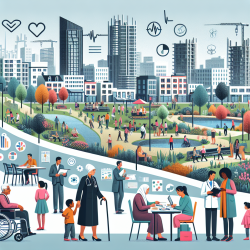The Power of Spontaneous Free Play in Early Childhood Development
In today's rapidly changing world, the significance of play in early childhood development cannot be overstated. Recent research, as highlighted in the article "Seeking Balance in Motion: The Role of Spontaneous Free Play in Promoting Social and Emotional Health in Early Childhood Care and Education," underscores the critical role of spontaneous free play in fostering children's social and emotional well-being.
Understanding Spontaneous Free Play
Spontaneous free play is characterized by its child-directed nature, where children control the play without adult-imposed rules or objectives. This form of play allows children to explore their environment, make decisions, and engage in activities that may seem chaotic or nonsensical to adults. However, these elements are essential for developing adaptability, resilience, and emotional balance.
Benefits of Spontaneous Free Play
Research indicates that spontaneous free play offers numerous benefits:
- Emotional Resilience: By navigating unpredictable play scenarios, children build emotional resilience and learn to cope with stress and anxiety.
- Social Skills: Play provides a platform for children to develop social competence, empathy, and cooperation as they interact with peers.
- Creativity and Problem-Solving: The open-ended nature of play encourages creativity and innovative problem-solving skills.
Challenges and Opportunities in Early Childhood Education
Despite its benefits, opportunities for spontaneous free play are diminishing in structured educational settings. Educators face the challenge of balancing curriculum demands with the need to provide time and space for child-led play. To address this, educators can:
- Integrate play into daily routines and curricula.
- Create environments that encourage exploration and creativity.
- Advocate for policies that prioritize play in early childhood education.
Encouraging Further Research
Practitioners are encouraged to delve deeper into the impact of spontaneous free play on child development. By understanding the nuanced benefits of play, educators can better support children's growth and well-being.
For those interested in exploring this topic further, the original research paper offers valuable insights into the transformative power of play. To read the original research paper, please follow this link: Seeking Balance in Motion: The Role of Spontaneous Free Play in Promoting Social and Emotional Health in Early Childhood Care and Education.










